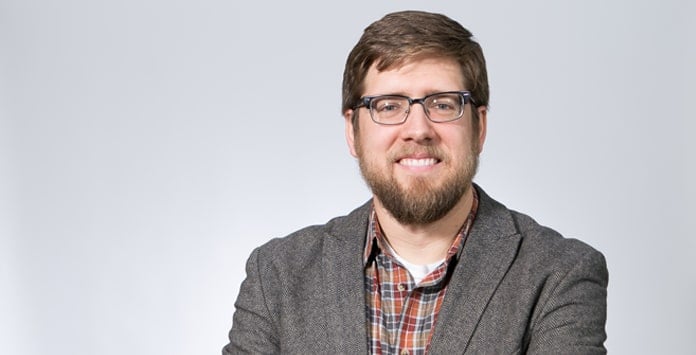Rett Syndrome Research Trust provides $2.7 million in new funding for research
Jonathan Watts and colleagues working to develop therapy to fix faulty gene in Rett syndrome
Date Posted: February 06, 2019 |
|
|
Jonathan Watts, PhD |
Jonathan Watts, PhD, and colleagues are advancing research to repair the disease-causing gene mutations in Rett syndrome, thanks to $2.7 million in new funding from the Rett Syndrome Research Trust. Rett syndrome is a neurological disease that occurs almost exclusively in girls, eventually robbing them of the ability to speak, walk or use their hands, among other devastating effects. It occurs in about 1 in 8,500 girls and is typically diagnosed between the ages of 6 and 18 months.
“This major support from the Rett Syndrome Research Trust allows us to aggressively pursue the development of therapeutic approaches for Rett syndrome,” said Dr. Watts, associate professor of RNA therapeutics. “In each of the areas we are pursuing, UMass Chan Medical School scientists have key expertise and unique strengths. The strong support from the Rett Syndrome Research Trust allows us to pursue three promising approaches in parallel.”
Rett syndrome is caused by mutations in a gene called MECP2, which is a master regulator of gene expression in the brain. In this project, the Watts lab is pursuing two kinds of approaches to repair these disease-causing mutations—either in the DNA itself, or in the messenger RNA produced from the MECP2 gene. The DNA-targeted approaches are being explored in collaboration with professors Erik Sontheimer, PhD, professor of RNA therapeutics; Scot Wolfe, PhD, professor of molecular, cell & cancer biology; and Anastasia Khvorova, PhD, professor of RNA therapeutics. A third approach, in collaboration with Allan Jacobson, PhD, the Gerald L. Haidak, MD, and Zelda S. Haidak professor of cell biology and chair of microbiology & physiological systems, attempts to “convince” the protein synthesis apparatus of the cell to read through the mutation and produce a correct protein.
“These RNA-, DNA- and protein-focused approaches have different strengths and weaknesses, and we will pursue each of these approaches in parallel,” Watts said. “Getting the level of expression of MECP2 just right in the brain is crucial for curing the disease; too much or too little and the brain does not function correctly. We are working to repair MECP2 in its natural context, so that the mechanisms the brain normally uses to express the right level of MECP2 are left intact.”
The Watts lab recently discovered principles for applying oligonucleotide therapeutics in the central nervous system. The broader team, including Dr. Khvorova, Dr. Sontheimer, Dr. Wolfe and Watts, also received significant funding from the National Institutes of Health to optimize delivery of gene editing machinery to the brain and central nervous system. In this new research, the team will extend and apply principles from both of these projects to modify RNA and DNA in a way that addresses the root cause of Rett syndrome.
The funding is part of $10 million in new grants awarded by the Rett Syndrome Research Trust this year.
“At Rett Syndrome Research Trust, we have one bold, challenging goal—to cure Rett and related MECP2 disorders. To that end, RSRT has developed the first and only comprehensive and aggressive plan to cure Rett syndrome. The strategies are identified, the scientists recruited and our internal research team poised to not only monitor and evaluate progress but to also be vigilant for new technologies on the horizon,” said Monica Coenraads, RSRT’s executive director. “Our important work is made possible by the passion and urgency of families affected by Rett who fundraise for us. As a parent of a young woman with Rett I am beyond grateful for these efforts. Our success will require the continued support of these families and beyond.”
Related stories on UMassMedNow:
Robert Brown Jr. and Jonathan Watts honored by Angel Fund for ALS
UMMS scientists receive $1.6M in NIH funding to improve genome editing techniques
New podcast: Allan Jacobson helps make sense out of nonsense mutations in genes